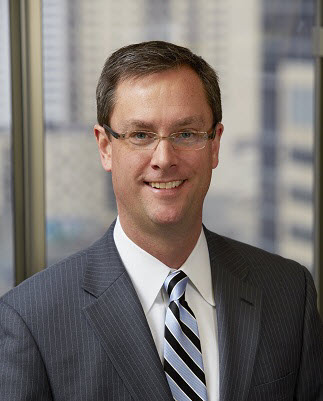
Last week a SoulCycle Instructor filed a class action suit alleging he and other Instructors were not paid for the extra hours spent in class prep, meetings, marketing, promotion, etc…
Does that sound like anyone you know?
What's proper or legal when it comes work requests, beyond actually teaching your classes, when you're asked by management?
I figured it would be helpful to get an understanding from someone who really understands the law as it applies to wages and pay. So I asked labor and employment Attorney Nick May, who I've worked with in the past, to be a guest on the show to help educate us all.
During the interview Nick raised this point, that I hadn't even considered;
Could the SoulCycle Class Action Lawsuit affect how you are paid in the future as an Indoor Cycling Instructor?
Listen to my interview with Attorney Nick May to learn more.
Podcast: Play in new window | Download
Originally posted 2013-05-10 16:58:21.

We had the same issue in general aviation. In most cases flight instructors were independent contractors. For all of the reasons Nick May discussed.
There is good news I think. First if you are already an employee it is very unlikely that the facility would try to change your status to independent contractor. Since your job would remain essentially the same the facility would fail the tests for contractor vs. employee.
The bad news is that all new instructors can be brought on with IC (independent contractor) agreements. This would allow your facility the flexibility to start letting go of the employees who are generally ‘at will’.
I don’t know if this suit falls into the ‘landmark’ case category but certainly, as John points out, the future of how we’re compensated is in question. Good or bad only time will tell.
A few years ago, I moved from the Midwest to NYC to immerse myself into the best indoor cycling studio scene available (expect perhaps southern California or Europe). The name SoulCycle stays on my radar, and I can share my personal experience/opinion in regards to SoulCycle with you later.
After I certified with Stages, on their (awesome) FreeMotion bikes, I interviewed multiple gyms in the NYC area. A Gold’s Gym on Long Island, NY was considering moving their program from Spinning to Stages.
Gold’s franchise owner and General Manager were interested in bringing in more members and could see a good ROI on this Stages program investment.
(more accurately the ROI to bring in the FreeMotion hardware – they left the Stages training behind…)
Many of the in-house instructors/members were fascinated/overwhelmed by the power/cadence/HR options on these FreeMotion bikes. For most, the structure of IC classes became confusing. “Allright class, in this next song, we are going to ride at 175W…” 🙁
​ ​ I shared my concerns, but who is the new guy to tell a 15 year Spinning veteran…
Only a few instructors were embracing the powermeter correctly. Games like let’s see how fast we can pedal (out-sprint the bouncing instructor) were played by the majority ;(
John, I rember watching a police office clumsily ride a bicycle in uniform around the park with knees out, helmet worn like Gomer Pyle…and my friend said, “You can make a cyclist a cop, but you can’t make a cop a cyclist.” The same may be said for these choreographed aerobic instructors…
Have we been able to witness a range of IC classes? Oh Yea! Do we deeply appreciate a class that focuses on zones with increasing levels of sophistication RPE —> Heartrate –> Power –> Mind/Body connection, Sure. We appreciate instructors that demand proper biomechanics, lead a ride profile appropriate to the skill level involved, a proper warm up and cool down…
We as instructors must do WHATEVER it takes to offer a quality class that will allow our participants to enjoy years of safe, healthy riding. As we get started, there may be a disproportionate amount of time preparing vs time in the saddle. In the military there is a saying, “We train to standard, not to time.”
Instead of taking the approach of let’s see how fast I can spin these pedals, let’s see the biggest peak I can get my watt meter to read today, as soon as this sprint is done-on-the-bike-I-sprint-out-the-door, or New York City’s favorite, ‘the louder I play the music and yell through this mic the more engaging this class will be’…we NEED A STANDARD.
When the standard is met: our gear is prepared, the schedule is set, the structure of each ride fits into the overall design of a safe, progressive plan, we understand the why, how, and when of our every move…then we are ready. If ANY instructor expects to achieve this in the 15 mins provided before and after an individual class, not only does that class suffer, but so do the entire industry.
If we expect to rely on the skills that we brought in because they were popular in the step class, or on the felt-pad-resisted-43lb-flywheel-bike in a dark room – then we are NOT prepared.
Preparation in any industry can not be offered directly paid by the hour. An IT guy learns about the new computer OS (operating system) to help his current clients do their job, not when he arrives at a client’s office expected to troubleshoot a system.
Indoor cycling deserves PROFESSIONALS. Do you agree; ‘We do whatever it takes to sustain the level of excellence that industry demands’ ? When consulting a rider in our peleton becomes a hindrance, there is no ‘SOUL’ in your cycling… stay home.